Outback Wrangler star Matt Wright charged with reckless conduct over crash that killed co-star Chris Wilson
Outback Wrangler host Matt Wright has been hit with fresh charges following the fatal chopper crash that killed his Netflix co-star Chris Wilson during a crocodile egg-collecting mission almost two years ago.
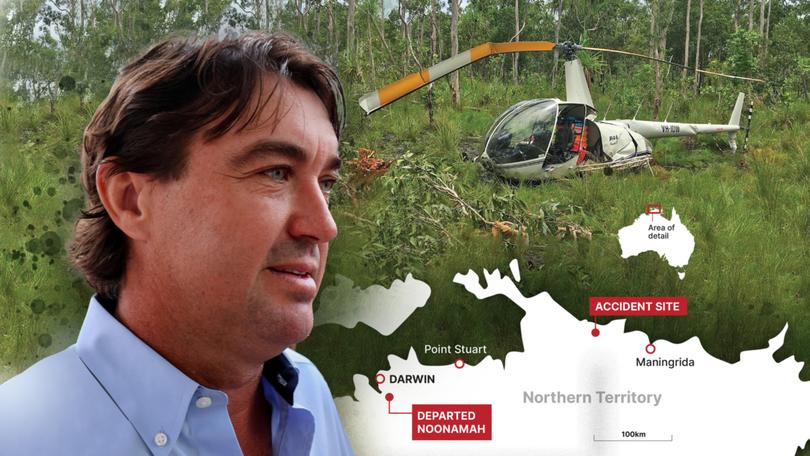
Outback Wrangler host Matt Wright has been hit with fresh charges following the fatal chopper crash that killed his Netflix co-star Chris Wilson during a crocodile egg-collecting mission almost two years ago.
The Northern Territory’s workplace safety watchdog on Thursday morning charged the celebrity croc-wrangler and his aviation company Helibrook Pty Ltd with “reckless conduct for operating unsafe aircraft” following the fatal chopper crash in a remote part of West Arnhem Land on February 28, 2022.
“NT WorkSafe has charged commercial helicopter company Helibrook Pty Ltd and company director Mr Matthew Nicholas Wright, with breaches of the Northern Territory’s work health and safety laws over their failures to maintain safe aircraft and allowing the aircraft to be operated when unsafe,” a spokesperson said.
Sign up to The Nightly's newsletters.
Get the first look at the digital newspaper, curated daily stories and breaking headlines delivered to your inbox.
By continuing you agree to our Terms and Privacy Policy.Helibrook Pty Ltd has been charged with two counts of reckless conduct under Section 31 of the Work Health and Safety (National Uniform Legislation) Act 2011 (‘the Act’) for failing its duties under Sections 19(1) and 19(2) of the Act.
Mr Matthew Nicholas Wright has also been charged with two counts of reckless conduct under Section 31 of the Act for failing his duties as an officer under Section 27(1) of the Act.
If found guilty of all charges, Helibrook Pty Ltd faces a maximum combined penalty of $6 million, while Mr Wright faces a maximum combined penalty of $1.2 million or five years imprisonment or both.
Charges under Section 32 and Section 33 of the Act for failing to comply with health and safety duties have also been laid against both defendants as alternatives to the reckless conduct charges.
The matter is listed for mention at the Darwin Local Court on 27 February 2024.
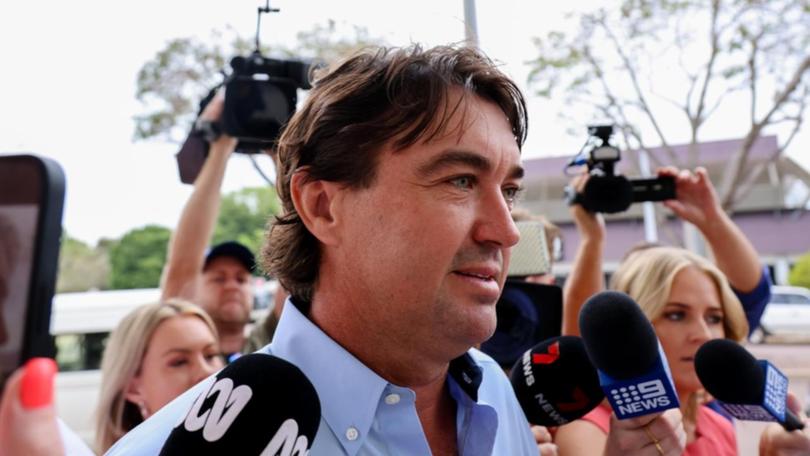
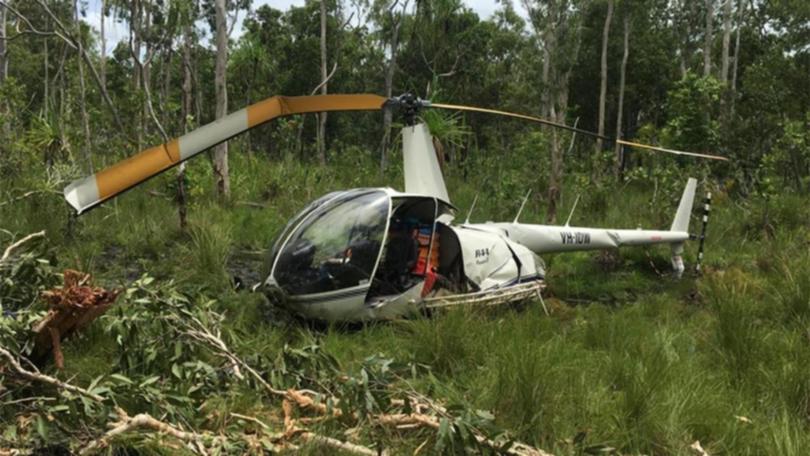
Wright’s company Helibrook owned and operated the destroyed Robinson R44 Raven II which crashed, soon after take-off from a staging area on the King River, 30km south of South Goulburn Island.
At the time of the crash the helicopter, registered VH-IDW, was contracted to Mick Burns’ company Wildlife Harvesting NT.
Pilot Sebastian Robinson, a licensed aircraft maintenance engineer, was flying.
The 30-year-old suffered severe spinal injuries and is now paraplegic.
The crocodile egg harvesting operation was conducted under a Civil Aviation Safety Authority instrument authorising the pilot to carry an egg collector on a 30m line attached to the helicopter.
Wilson – who starred in Outback Wrangler and Wild Croc Territory – was the egg collector in one of three crews on the mission that morning.
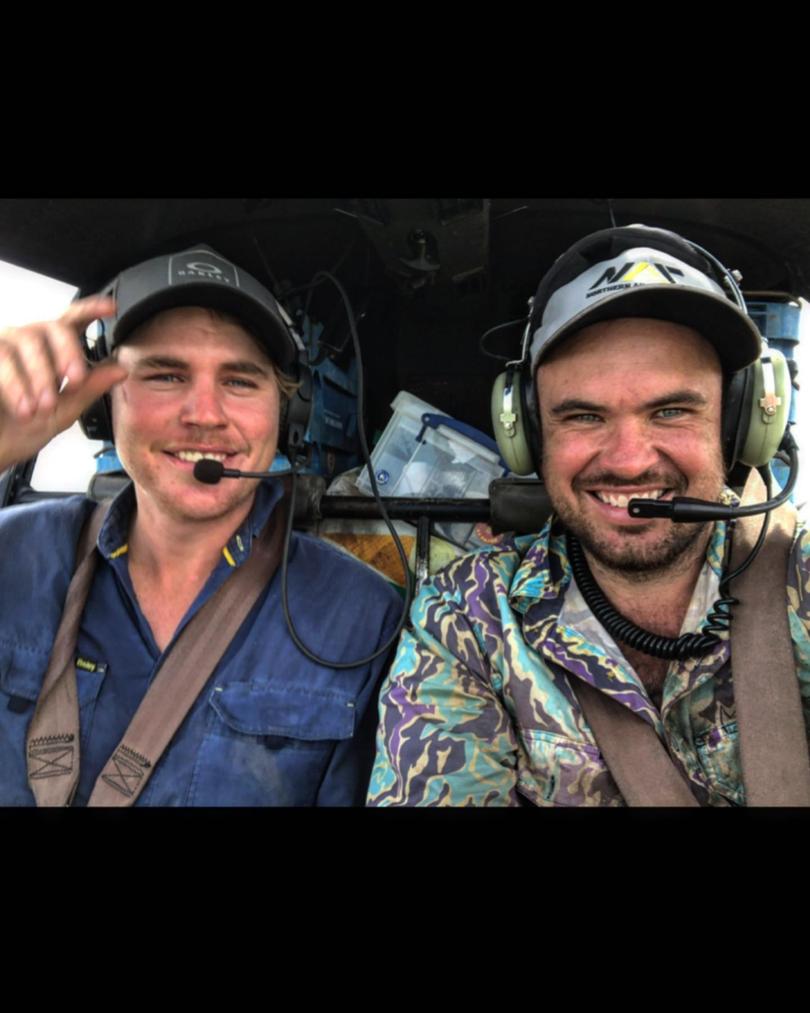
Since the fatal crash NT WorkSafe has been investigating the high-profile accident to determine whether any breaches of work health and safety laws had occurred.
Its investigators have been focussed on what processes, procedures and safe systems of work Helibrook had in place at the time of Wilson’s death and whether these were followed.
In December NT Police revealed they had shared a “comprehensive investigation file” with other agencies including NT WorkSafe, CASA and the Director of Public Prosecutions.
“The file includes maintenance and fuel records, expert opinions concerning the fuel system and airworthiness of the stricken aircraft and toxicology analyses of individuals involved in the crash,” a police spokeswoman said.
“These agencies are currently examining the culpability of individuals and entities with respect to the tragic death of Christopher ‘Willow’ Wilson.”
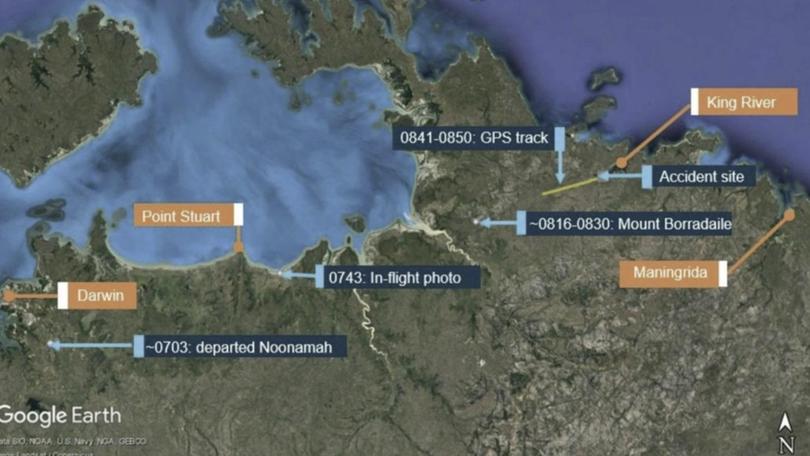
After the fatal crash, NT WorkSafe issued prohibition notices to the three companies who were involved in harvesting crocodile eggs, temporarily banning the practice of slinging egg collectors beneath choppers.
“The prohibition notice required each business to detail to NT WorkSafe how they would remedy any risks associated with transporting workers suspended from a helicopter via a sling, before they could recommence the activity,” a spokesperson said last month.
“The prohibition notices have been lifted for two companies and remain in place for one.
“Further findings, including our investigation report, will not be made public as these will form part of NT WorkSafe’s brief of evidence for a possible prosecution, if our investigation has determined there has been a potential breach of the work health and safety laws.”
In November the Australian Transport Safety Bureau released its 113-page final report into the accident, finding that the helicopter “likely” collided with terrain soon after take-off due to fuel exhaustion.
“The ATSB investigation determined that the helicopter’s engine stopped in flight, probably due to fuel exhaustion,” said ATSB Chief Commissioner Angus Mitchell. “During the subsequent autorotation emergency forced landing procedure, the pilot released the hooks and sling line carrying an egg collector beneath the helicopter.”
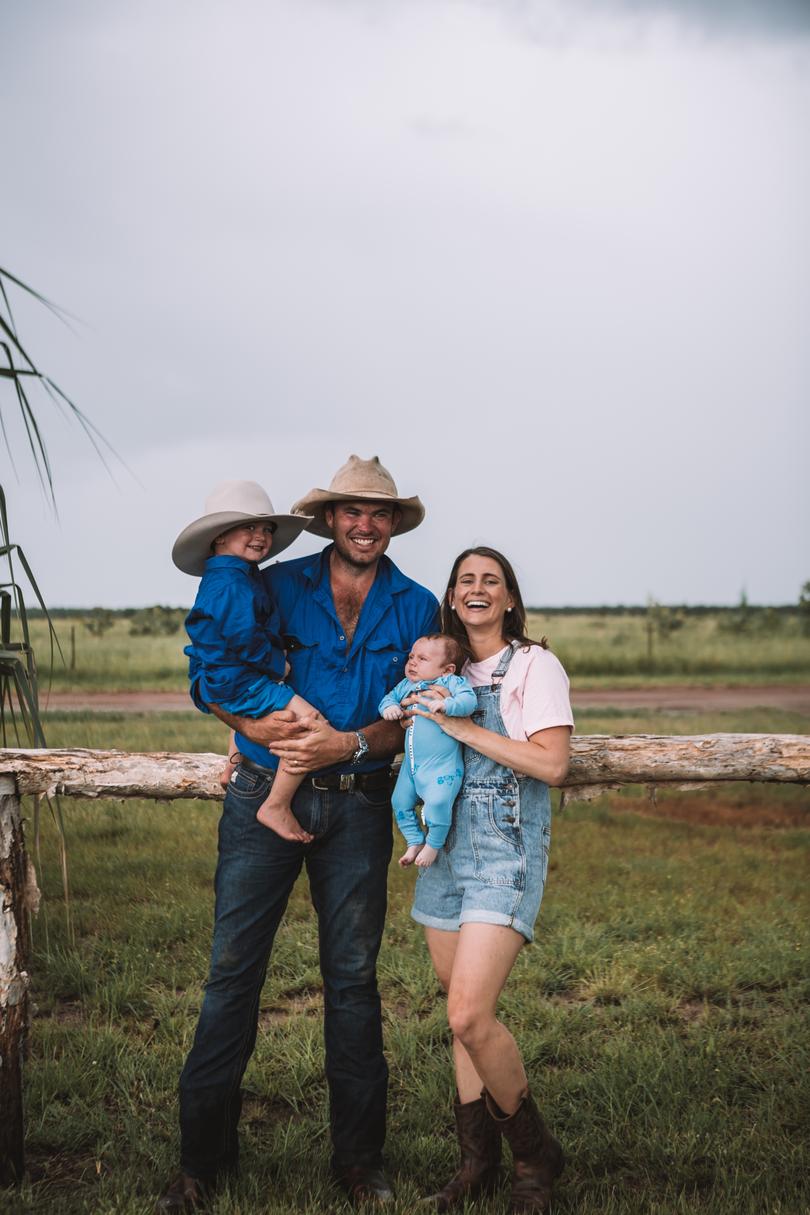
However, crocodile egg collector Tim Luck, who was in another crew on the egg-collecting mission with Wilson, insists that he refuelled the destroyed chopper himself about 20 minutes’ flying time before it crashed.
The national transport safety watchdog’s damning report also laid bare a litany of failures and serious safety issues involving CASA and Helibrook.
Mr Mitchell said the ATSB’s investigation found that Helibrook was not using its safety management system to systematically identify and manage operational hazards.
“As a result, the operator did not adequately address the risks inherent in conducting human sling operations, such as carriage of the egg collector above a survivable fall height,” he said.
“In addition, and although not assessed on the evidence as having been contributory to this accident, the operator’s history of non-compliance with regulatory requirements, maintenance standards and accurate record keeping, increased the risk level for much of their aviation activities.”
The ATSB said that although not likely to result in sudden power loss, engine defects present at the time of the accident – including low compression in one cylinder and valve clearances out of service limits – likely affected the engine’s maximum power output and fuel consumption.
“Additionally, Helibrook had likely overrun the helicopter’s maintenance, inspection and overhaul periods, which increased the likelihood of the helicopter experiencing a technical failure or malfunction,” the report said.
A Robinson R44 helicopter – such as the one involved in the crash – must be overhauled at 2,200 hours or 12 years’ service, which costs about $400,000.
In response, Wright told the ATSB he was shutting down Helibrook and selling his choppers.
In late 2022, Wright and two others – pilot Michael Burbidge and former police officer Neil Mellon – were charged with offences including making false statements, destroying evidence and either conspiring or attempting to pervert the course of justice.
Burbidge and Mellon last month pleaded guilty to destroying evidence in relation to Wilson’s mobile phone which went missing from the crash site.
The two men will separately be sentenced on February 29 and March 1.
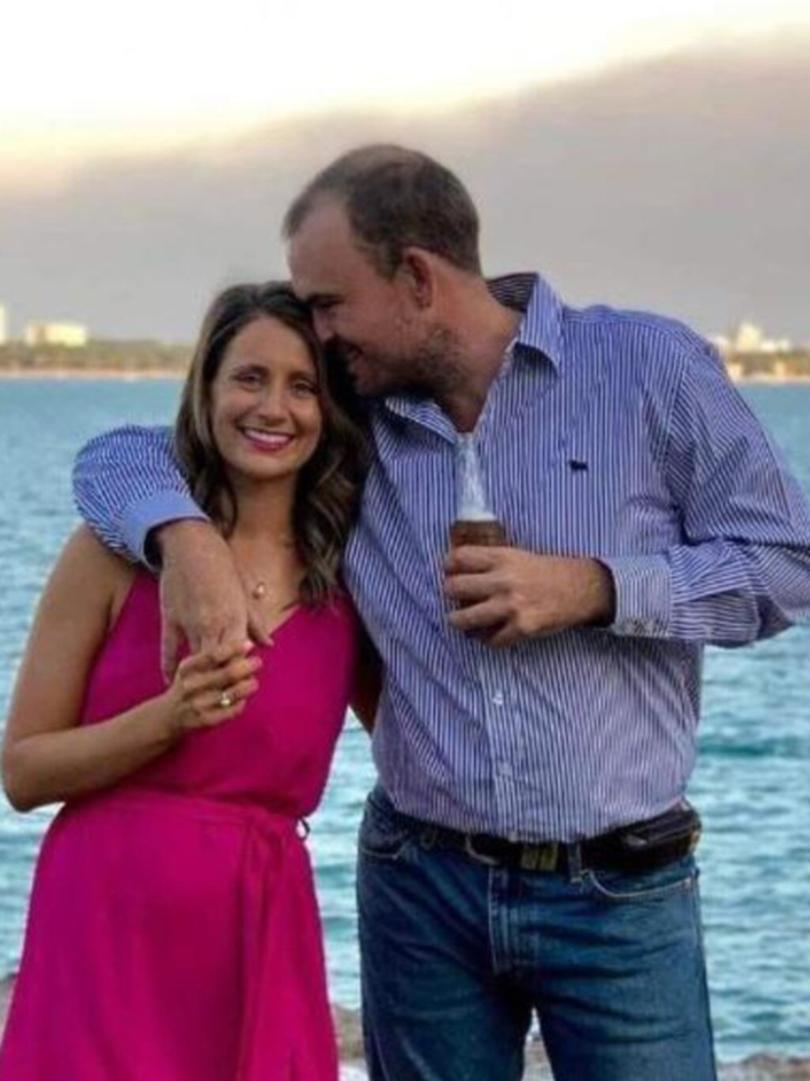
Deputy Chief Judge Tanya Fong Lim committed the most serious of Wright’s seven criminal charges – attempting to pervert the course of justice – to the Supreme Court.
That matter is listed for a criminal call-over next month, where a trial date or a further hearing could be set.
But before then, Wright will return to the Darwin Local Court to face the WorkSafe charges later this month.
The NT Police investigation into the crash and its aftermath is ongoing while CASA is yet to take enforcement action against Helibrook, which has been voluntarily suspended, or its key personnel.
Wilson, 34, left behind his wife Danielle and their two young sons.
His young widow recently launched civil proceedings against Helibrook and CASA in the Federal Court over her husband’s death.

